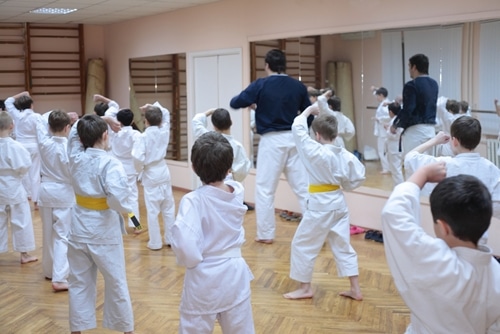Tips for Becoming a Martial Arts Mentor
There are a number of different variables that come with running a successful martial arts school. Not only do managers have to worry about keeping their classes full, but they must also develop engaging training strategies to keep students interested and motivated to continue their studies.
Martial arts software can certainly help on the business side of things. This solution can help owners know exactly how many students are needed per class in order to maintain operational stability. The tool can also be useful in identifying those who may have suddenly stopped attending classes. This can aid in retention efforts by allowing an instructor to contact the student or his or her parents directly to uncover what the issue is and work on ways to overcome them.
However, there is an ever bigger responsibility for those teaching self-defense classes and helping students master the fine arts of taekwondo and karate: mentorship. Although there are a number of people who actively seek out opportunities to be a mentor, for many, it’s just something that happens organically. This is especially true in facilities where martial arts are taught, particularly when kids make up the majority of classes.
Children in martial arts are far more likely than adults to look up to their instructors. In many cases, these individuals serve as a source of inspiration, and fully engaged students often strive to be as good as or better than their instructors. Whether the owner of the school is also teaching classes or have other instructors working under him or her, it is likely that all parties will find themselves offering guidance and advice in areas outside of self-defense.
Being a mentor comes with a lot of responsibility. Anyone who finds themselves in this position should relish the opportunity to make a difference in the lives of another and put forth their best effort.
Tips for becoming a good mentor
So how do you actually mentor someone? This isn’t the kind of thing that can be taught in school. In many cases, it can be shocking and overwhelming once a person realizes they have someone looking to them for guidance. However, martial arts school instructors must understand that becoming a de facto mentor comes with the territory.
Here is a closer look at some of the best practices for mentors to follow:
The importance of setting expectations:
In many mentor and mentee relationship, the latter will unintentionally place high demands on the time of the former. If the person offering guidance also happens to be the owner of the school, the American Psychological Association suggests clearly communicating to a student the most opportune time to make contact should they need help with something. This will set clear boundaries and help make the relationship beneficial to both parties.
Become an active listener:
In a number of instances, mentees, just want someone to listen to their concerns. However, many people today don’t listen for clarity; they do so to offer a rebuttal. A recent post from Management Mentors stated that being an active listener requires a lot of energy and focus. It’s very easy for one’s mind to wander off during a conversation, and this can put a strain on any relationship. To counter this, take steps to display interest, such as making eye contact, asking probing questions and even taking notes.
Keep in touch:
Being proactive and checking on the well-being of another is another crucial element of being a mentor, according to the APA. A quick phone call or text message to an individual is a great way to develop open dialogue and communication. It also shows caring and concern for the person being mentored.
Be committed to seeing mentees succeed:
The best mentors are those who are determined to help others reach and fulfill their goals in life. In addition to the prospect of turning a profit, many martial arts school owners decide to open facilities to see students become more self-confident meet personal goals. This kind of attitude should also translate to a mentor and mentee relationship. The success of another also reflects on the person who helped an individual realize his or her dreams.
Being a mentor to someone can be a rewarding experience. However, it also takes time and commitment to steer someone in the right direction. As a martial arts school owner or instructor, it’s important to realize that in addition to training students in the art of self defense, in many instances those enrolled in classes my look to you for guidance.
Serving as a source of inspiration or positive influence for someone is a way to strengthen the reputation of a martial arts school. By ensuring that everyone taking classes receives the individual attention that he or she is looking for, they will be more likely to tell others within their circles about their experience which can attract more students to sign up for training.
